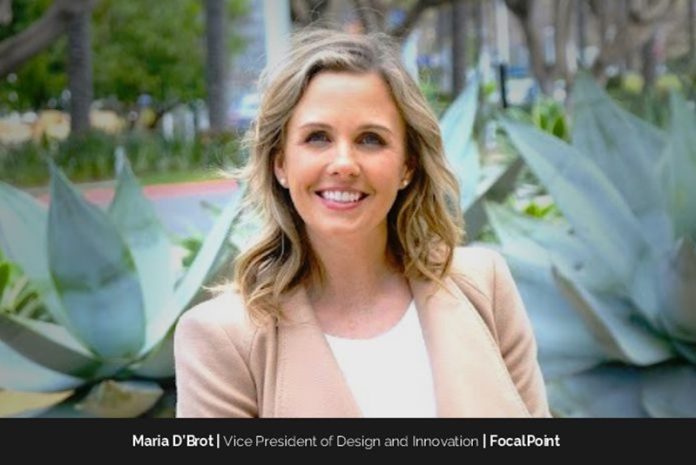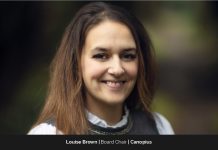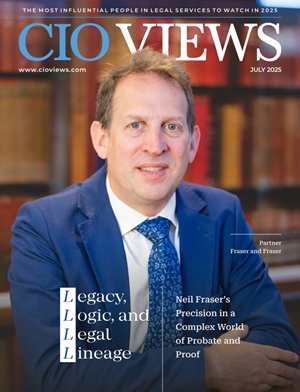
After a successful six-year-plus tenure at the Oklahoma State Department of Education, Maria D’Brot moved to New Meridian to serve as the Vice President of Assessment Design & Development. While at New Meridian, an assessment company committed to advancing equity in education, she oversaw psychometrics, research, content, and test development. Most recently, she made the move to FocalPoint, an international edtech company relentlessly pursuing excellence with state-of-the-art technology. As the Vice President of Design and Innovation, she is a member of the leadership team overseeing strategy, operations, product design, product development, and business development.
Personally and professionally, Maria D’Brot is dedicated to fostering resilience, growth, and empowerment in herself and those around her. Over the years, she has learned that it is more effective and more efficient to build and rely on structures that support success rather than chasing one-off solutions that target any one specific outcome. As a leader in education and as a parent to five children in a blended family, Maria firmly believes that “structure is tantamount to flourishing.”
“Prioritizing structure has helped me create processes that can withstand change and effectively navigate dynamic landscapes,” she says.
A Short Recap of Her Journey
The young Maria aspired to become an equine veterinarian. However, her decision to start a family during her undergraduate studies pivoted her career path. This led her to the field of education, where she discovered her deep passion for empowering students and making a difference in their lives. Maria began as an emergency-certified teacher in Oklahoma. “I was driven by a passion for student success and a desire to make a difference in the educational landscape,” she says.
In 2016, Maria D’Brot joined the Oklahoma State Department of Education to expand her sphere of influence and make a positive impact on the educational system. Because of her unwavering dedication and continuous learning, Maria progressed from a classroom teacher to leadership roles within the State Department of Education. Before her move to FocalPoint, she held the positions of Deputy Superintendent of Assessment, Accountability, Data Systems, and Research and served as the Vice President of Assessment Design and Development for New Meridian.
In addition to Maria’s pursuit to find opportunities that enable her to make a difference in the educational space, Maria has committed to a life of continuous learning. She is pursuing her PhD in Research, Evaluation, Measurement, and Statistics at Oklahoma State University. Her research focuses on large-scale accountability systems and their role in measuring and communicating school quality.
Maria’s professional journey has been characterized by resilience, adaptability, and a relentless pursuit of excellence. She, however, has sought to do so in service to something beyond herself. Her work in education has steadfastly been focused on a commitment to improving educational outcomes and advocating for improved conditions for underserved populations.
Support of Multiple Women
Maria encountered unique challenges and opportunities at every step of her journey. She overcame them with the support of many women along the way. “No one is going to climb that hill for you,” she says. But you’re going to get a lot of encouragement and a few helping hands along the way.”
Maria considers herself a “product of the strong women” in her life. Within her family, her maternal grandmother and mother are two of the most hardworking people she has had the privilege to know. She shares that her mother, one of the eleven children, grew up on a farm in Nebraska. “On the farm, faith, hard work, and resilience were instilled in them at a young age,” she says. Maria’s grandmother has 45 grandchildren and nearly 140 great-grandchildren.
For her grandmother and mother, the family always came first. Maria explains that this way of life necessitated the need for consistent structures to survive and thrive, and those structures were passed down for generations. This was her early exposure to the need to plan and adapt as life changes.
Maria’s lifelong mentor and friend, Carol Wolf, also had a significant impact on her life. She was instrumental in making her feel safe and encouraged Maria to forge her own way. Additionally, when she was working at the State Department of Education, strong women who embodied servant leadership not only paved the way for her success but also served as role models. Maria highlights that these women chose both family and career, excelling on both fronts due to the support provided by others.
“Then, there are also those outside of my immediate organization who provide guidance and counsel on content, networks, and approaches to the work,” Maria says. These women, including mentors, peers, and subordinates, help her reflect on her work and continuously reorient her perspective to focus on systems and see the bigger picture.
“I was fortunate to have strong women who helped me, guided me, and supported me in pursuing leadership positions,” Maria says. “I wouldn’t be where I am today without courageous women who blazed the trail before me and encouraged me to continue paving the way for others.
Inspired by the women in her life, Maria has used her positions to continue building systems and creating better structures for others to pave their own way.
Impacting the Lives of Others
Success for Maria is about making a meaningful impact on the lives of others while remaining true to her core values. However, her definition of success has evolved over the years. Earlier, she had an inward-facing view of success, which has evolved as her experiences continually reshape her views.
Maria, who serves others through her work, also defines personal success as using her position and experiences as leverage to help those close to her, encouraging them to push their boundaries, supporting their growth, and helping them thrive. “I’m particularly passionate about doing this for whom the system is not built,” she says. “Specifically, working to help women and historically marginalized groups.” Managing that can be “delicate, as one is dealing with a lot of “in-group and out-group power dynamics,” according to her.
However, as she has gained knowledge and become more comfortable in positions of authority, it has become easier for her to see barriers in place that impede the out-group from gaining access and allowing them to make their own impact. “This is where making changes to the system and its structures is most important,” Maria says.
So, at present, Maria’s success is using her position of influence to improve systems and structures within her reach, to empower those who would otherwise not have the opportunity to do so.
Wearing Multiple Hats
In addition to serving as the Vice President, Maria handles multiple other responsibilities. She is actively involved with Women in Measurement, an initiative dedicated to advancing gender and racial equity in educational measurement leadership. She takes pride in her support for this initiative, as its members amplify the diverse voices of all women and provide structures of support for career advancement.
“Women in Measurement helps me stay connected to others who want to amplify underrepresented voices and actively think about the structural barriers that exist and the processes that can be put in place to break them down,” Maria says.
She is also associated with the Technical Issues in Large Scale Assessment (TILSA) collaborative as a Steering Committee Member. TILSA, Maria explains, is one of the several State Collaboratives on Assessment and Student Standards (SCASS), mainly comprising state assessment directors, data analysts, and psychometricians across the country. This group shares resources and addresses challenges in large-scale assessment design, development, and evaluation.
TILSA’s main focus is structural challenges and technical decisions with assessments, but it also addresses the impact of technical decisions on policy, practice, and politics. “This gives me and others the opportunity to raise issues around representation, cultural responsiveness, and equity, as well as address them systemically,” Maria points out.
She also chairs the Association of Test Publishers (ATP) Special Interest Group (SIG) on EdTech and Accessibility. Maria points out that the EdTech and Accessibility SIG are committed to advancing assessment and testing in education through innovation, best practices, networking, and exchanging information and expertise to serve students with disabilities.
“We are committed to encouraging international strategies that advance the position of the industry, its technology, and the science that supports it,” she says. “This initiative allows me to build systems that support some of the students with the greatest needs in our industry and enable me to lead by serving others.”
Balancing Work and Life
Maria prioritizes her role as a parent and partner, though her career path continues to be a source of passion and fulfillment. She shares that she and her husband, parents to five children aged 6 to 14, are deeply invested in their blended family. They actively support their children’s academic pursuits and extracurricular activities, including their shared passion for Spartan racing.
“For us, Spartan’s mission of helping people live without limits resonates deeply, as it reflects our belief in the importance of developing both physical and mental strength to tackle life’s challenges with resilience and determination,” Maria says.
She also believes that without a sense of structure, the idea of living without limits can be overwhelming for children and organizations. Her family’s guiding principle–respecting oneself and respecting others–directs their efforts with their children. According to Maria, this principle offers an easy check-in for decisions. “I take the same principles and lessons from my personal life and apply them to professional settings,” she adds.
Maria points out that professional interactions boil down to interpersonal interactions with a shared organizational goal. While personal and professional goals may differ, the guiding principles that they hone in their family are common to work relationships and outcomes, according to her.
“Take, for example, the areas that I invest in professionally beyond my daily duties as assigned,” she says. “I’ve chosen and stayed involved with these initiatives because they elevate self-respect and respect for others and contribute to the larger communities in which I’m involved.”
Message to Aspiring Women Leaders
In her message, Maria advises aspiring women leaders to find a structure that works for them. Once they do, she encourages them to “stick with it, learn from it, and learn to improve on it.”
“This doesn’t mean you always have the answer,” she explains. “Sometimes, it means recognizing that you don’t know the answer, but that you will rely on your structure or process to understand the scope of the problem, apply your process, and find the answer that best fits the context.”
Maria’s experience has taught her that understanding how to build a good – and often flexible – structure takes time. Drawing from her experience, she suggests that one way is to identify and instill core values in oneself and others, which increases chances for success when facing any obstacle. The next step, she points out, is to consider the types of structures that can help reinforce these core values.
“For example, my husband and I have involved our family in obstacle course racing, specifically Spartan racing, which has been a perfect opportunity to reinforce values like self-respect, gratitude, teamwork, and perseverance,” she shares with aspiring women leaders. “It has also given us tangible opportunities to highlight the importance of advanced preparation.”
Maria also advises aspiring leaders to figure out what they want, create a structure or process that enables them to do so, and demand that those around them support them.“You can embrace a career, dedicate time to a family, or walk both paths,” Maria tells these women. “I’m not saying that you can have everything – balance requires trade-offs, ” she adds.
“However, it’s easier if you dedicate yourself to a process aligned to your core values, build a network of people around you who will support you, and support those who advocate for you,” she says. “Helping those who help you is a virtuous cycle–we need to continue to pay it forward both in our actions and in the structures we leave behind.”




















